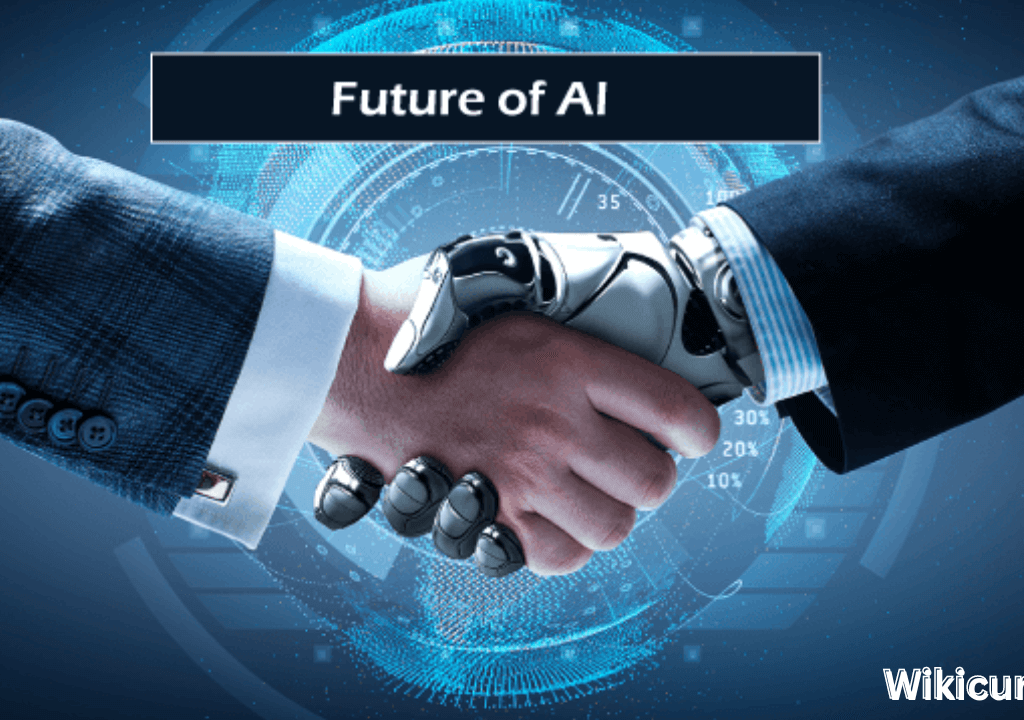Artificial intelligence (AI) has rapidly become a ubiquitous term, woven into the fabric of our daily lives. From the moment we wake up to personalized news feeds to the voice assistants that answer our questions, AI is subtly shaping our world. But what does the future of AI hold? This blog delves into the potential benefits and drawbacks of this rapidly evolving technology, exploring its impact on various sectors and the opportunities it presents.
AI in the World: A Glimpse into the Future
The future of AI is brimming with possibilities. Imagine a world where AI-powered robots perform complex surgeries with unmatched precision, or intelligent traffic management systems optimize cityscapes for seamless commutes. AI has the potential to revolutionize various sectors, including:
- Healthcare: AI is already assisting in medical diagnosis, drug discovery, and personalized treatment plans. In envisioning the future artificial intelligence, we embark on a journey toward unprecedented innovation, where intelligent systems will revolutionize every facet of human existence, from healthcare to transportation, fundamentally altering the course of our collective future. This can even extend to self-care, with AI-powered virtual assistants reminding us to take medications, offering personalized fitness routines, and even monitoring our sleep patterns to identify potential health concerns. In the future of AI, we can expect even more sophisticated medical applications, such as AI-powered robots conducting minimally invasive surgeries or AI systems analyzing vast sets of patient data to identify potential health risks.
- Manufacturing and Logistics: AI-powered automation is poised to revolutionize various industries, particularly in manufacturing, where it can streamline production lines in factories, optimize processes, and significantly reduce human error. By harnessing AI-driven technologies, businesses can achieve unprecedented levels of efficiency and productivity.
Moreover, AI-powered logistics systems hold immense potential to enhance supply chain management by improving delivery routes, minimizing transportation costs, and optimizing inventory management practices. These advancements pave the way for a more streamlined and responsive supply chain, capable of meeting the evolving demands of today’s dynamic market landscape.
- Environmental Sustainability: AI can play a crucial role in combating climate change. Imagine intelligent systems that monitor and optimize energy use in buildings, or AI-powered robots that assist in environmental cleanup efforts. In the future of AI, AI can be a powerful tool for promoting sustainable practices.
Explore the wonders of AI, software innovations, lifestyle tips, and more on Wiki Curiosity. Dive into our diverse categories to discover endless insights and inspiration for enriching every aspect of your life. Start exploring today!
AI Tech Solutions: Transforming Industries
Beyond these broad applications, the future of AI promises a plethora of specific AI tech solutions. AI in media can personalize content experiences, tailoring recommendations to individual user preferences. AI in entertainment can create more immersive and interactive experiences, from AI-powered game characters to personalized storylines in movies and television shows. Even everyday gadgets like smartphones could be revolutionized by AI gadgets equipped with advanced AI capabilities, anticipating user needs and offering proactive assistance.
Artificial Intelligence in Information Technology
The future of AI is intricately linked with advancements in information technology (IT). AI algorithms rely on vast amounts of data to learn and improve. Artificial intelligence in information technology will be crucial for developing the infrastructure and computing power necessary to handle the ever-growing volume of data generated by AI systems. Additionally, AI can be used to optimize IT systems themselves, automating tasks and identifying potential problems before they occur.
The Two Sides of the Coin: Pros and Cons of AI
While the future of AI is brimming with potential, it’s crucial to acknowledge both its pros and cons.
Pros:
- Increased Efficiency and Productivity: AI can automate repetitive tasks, freeing up human time and resources for more complex endeavors.
- Enhanced Decision-Making: AI can analyze vast amounts of data to identify patterns and trends that humans might miss, leading to more informed decisions.
- Improved Quality of Life: Artificial intelligence can contribute to advancements in healthcare, transportation, and environmental sustainability, ultimately improving the quality of life for all.
Cons:
- Job displacement: Automation powered by AI has the potential to displace jobs in various sectors.
- Ethical Considerations: As AI becomes more sophisticated, ethical questions regarding bias, privacy, and control over AI systems will need to be addressed.
- Existential Threats: Some experts raise concerns about the potential for superintelligent AI to surpass human control and pose an existential threat.
Opportunities and Challenges in the Future of AI
The future of AI presents a wealth of opportunities. By harnessing the potential of AI responsibly, we can create a future that benefits all of humanity. However, significant challenges need to be addressed. Developing ethical frameworks for AI development, ensuring equitable access to AI benefits, and fostering public trust in AI are all crucial aspects of navigating the future of AI.
Conclusion
The future of AI is not predetermined. It is a future we can shape through responsible development and thoughtful implementation. By fostering collaboration between researchers, policymakers, and the public, we can ensure that AI is used for good. Let’s embrace the opportunities that the future of AI presents while working together to mitigate potential risks. By doing so, we can harness the power of AI to create a brighter future for all.
